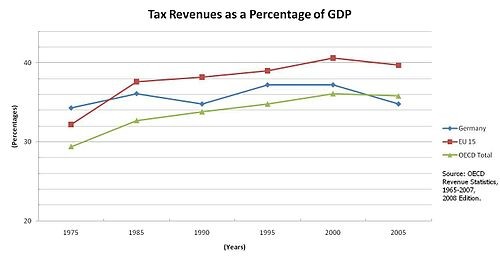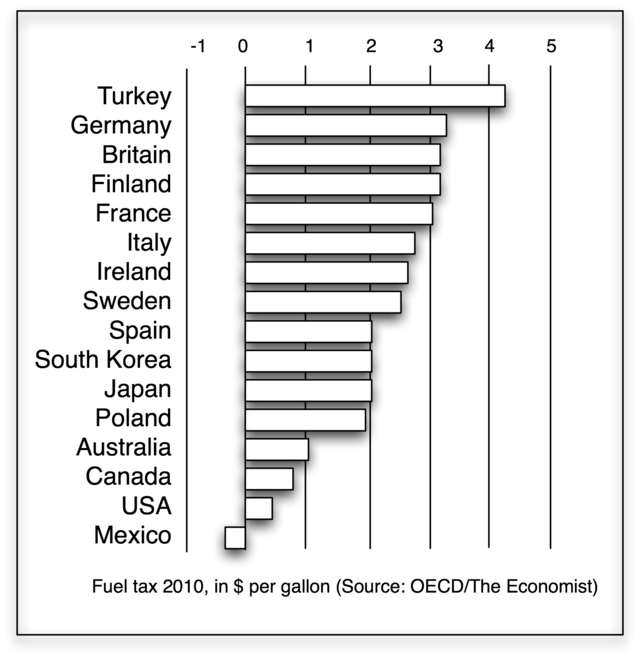Dividend tax Wikipedia the free encyclopedia
Post on: 16 Март, 2015 No Comment

§ Controversy [ edit ]
The examples and perspective in this section may not represent a worldwide view of the subject. Please improve this article and discuss the issue on the talk page. (November 2013)
Depending on the jurisdiction dividend income along with interest income, collected rents, or other unearned income may also be taxed and is the subject of recurring debate as to whether or not these taxes should be eliminated.
A corporation is a legal entity that can own property. sue or be sued, and enter into contracts. The corporation is, therefore, separate from its shareholders with a life of its own. As a separate entity, a corporation has the right to use public goods as an individual does, and is therefore obligated to help pay for the public goods through taxes. [ 1 ]
Professor Confidence W. Amadi of West Georgia University has argued,
The greatest advantage of the corporate form of business organization is the limited liability protection accorded its owners. Taxation of corporate income is the price of that protection. This price must be worth the benefits since, according to the Internal Revenue Service (1996), corporations account for less than 20 percent of all U.S. business firms, but about 90 percent of U.S. business revenues and approximately 70 percent of U.S. business profits. The benefits of limited liability independent of those enjoyed by shareholders, the flexibility of change in ownership, and the immense ability to raise capital are all derived from the legal entity status accorded corporations by the law. This equal status requires that corporations pay income taxes. [ 2 ]
Although the above is an argument for corporate taxation as opposed to the taxation of dividends, arguments for the taxation of income from capital would apply to both and on that count it can be argued that from a social policy standpoint it is unfair, and unproductive economically, to tax income generated through active work at a higher rate than income generated through less active means. Also, because earned income derived from a corporation is also reduced by corporate tax paid, the application of a double taxation argument only in the passive unearned income argument, is logically inconsistent.
One issue with the above arguments in favor is that income must account for liabilities. If the corporation is treated as an entity separate from its shareholders then any its gains are offset by equal growth of its liability to the shareholders (whom it owes all its assets). Thus net income is always zero and any tax would not be an income tax. If not separated from the shareholders, then corporate income tax is a sort of early withholding against expected future shareholders liability. Then the shareholders should get a deduction (from dividends and capital gains) for income taxed at the corporate level.
Critics, such as the Cato Institute. argue that a dividend tax amounts to unfair double taxation. Double taxation refers to cases where tax is levied twice on the same income or gain, for example when a company incorporated in Country A has a branch in Country B, and both countries levy tax on the profits of the branch. This is often mitigated by tax treaties. The same can apply if an individual resident in Country A works in Country B, and both countries tax the employee’s wages. But even within the same jurisdiction, profits can be taxed twice as when dividends, which are distributed corporate profits, are taxed in the hands of the shareholder, and the company has already paid a corporate tax on these same profits. This means that the shareholders, as owners of the profits, have already been taxed.
Cato’s position is,
First, high dividend taxes add to the income tax code’s general bias against savings and investment. Second, high dividend taxes cause corporations to rely too much on debt rather than equity financing. Highly indebted firms are more vulnerable to bankruptcy in economic downturns. Third, high dividend taxes reduce the incentive to pay out dividends in favor of retained earnings. That may cause corporate executives to invest in wasteful or unprofitable projects. [ 3 ]

Economists use the term double taxation in reference to the tax on dividends due to the fact that dividend income is paid out of corporate profits and represent a portion of the profit stream owned by shareholders. Since corporate profits are taxed first at the corporate tax rate, they are taxed again when paid out as dividends (or capital gains, which are a derivative of corporate profits). Therefore, to find the true tax on capital, the corporate tax rate is added to the dividend tax and capital gains tax. This calculation is complicated by the fact that some shareholders own shares in tax-deferred accounts, which are ultimately taxed at the personal income tax level (often but not always higher than the capital gains or dividend tax rate) upon withdrawal. Since debt financing is often tax-deductible, companies are incentivized to borrow, thus reducing taxable income but leveraging the growth rate of profits and capital gains. The result of this activity is to increase the volatility of corporate profits and thus stock price movements, which increases the probability of bankruptcy.
Although (see arguments in favor above) it is sometimes argued by proponents of dividend taxation that employee wages are subject to the same double taxation, on the theory that corporate tax reduces the company’s income available to pay wages, just as much as it reduces the amount available to pay dividends, this is misconceived. Employees wages are determined by employee contracts and the employer is not entitled to reduce them if its corporate tax bill increases. Shareholders, however, are entitled only to the residue of profits after meeting all other expenses, including corporate taxes. So if corporate taxes rise, the shareholder is entitled to less. Moreover wages, unlike dividends, are deductible in the computation of corporate taxable profits, and so pass to employees with no amount deducted for tax at the corporate level. This can be shown easily by imagining a company which decided to pay out all its profits not as dividends, but as extra wages for its employees. Such a company would pay no corporate tax at all
§ Dividend tax policy [ edit ]
§ United States [ edit ]
In 2003, President George W. Bush proposed to eliminate the U.S. dividend tax saying that double taxation is bad for our economy and falls especially hard on retired people. He also argued that while it’s fair to tax a company’s profits, it’s not fair to double-tax by taxing the shareholder on the same profits.[4]
Dividend Taxation in the United States since 2003 [ 4 ]














